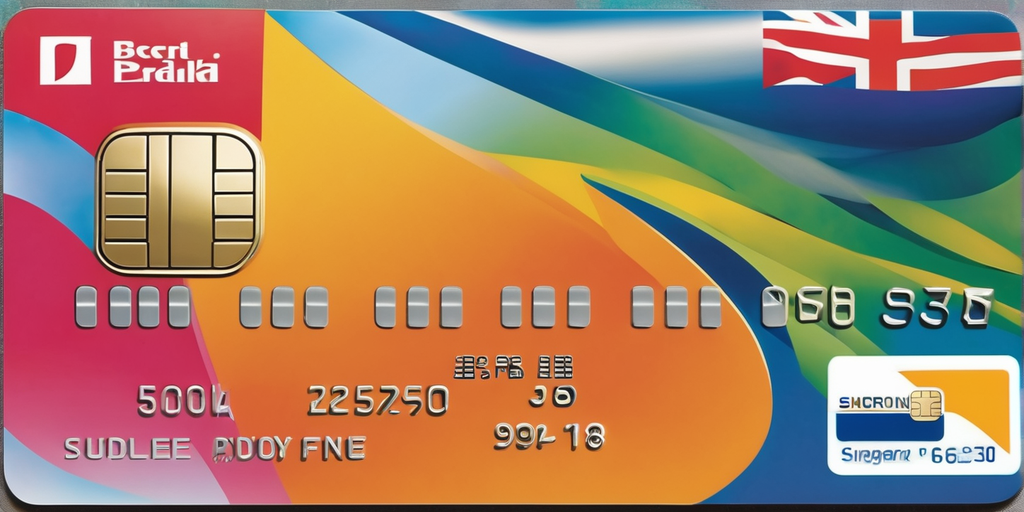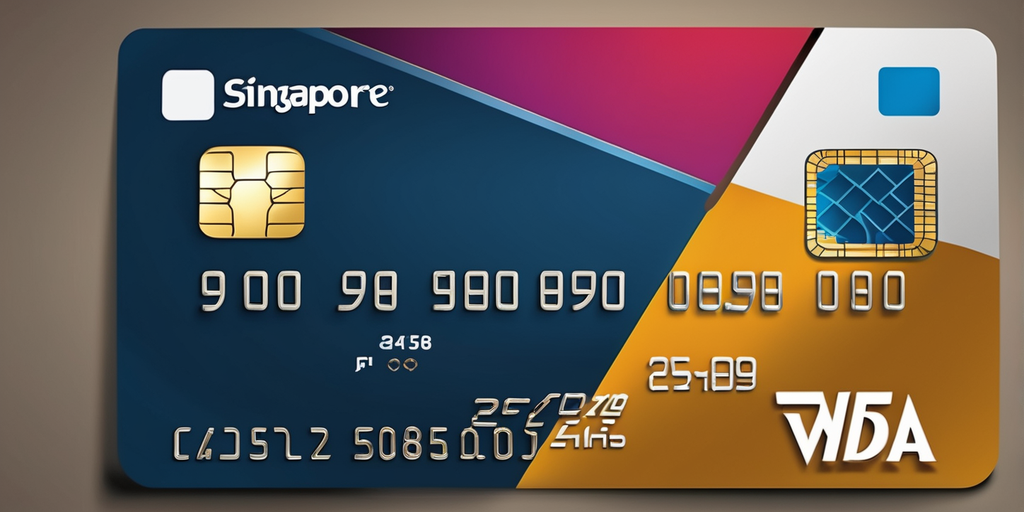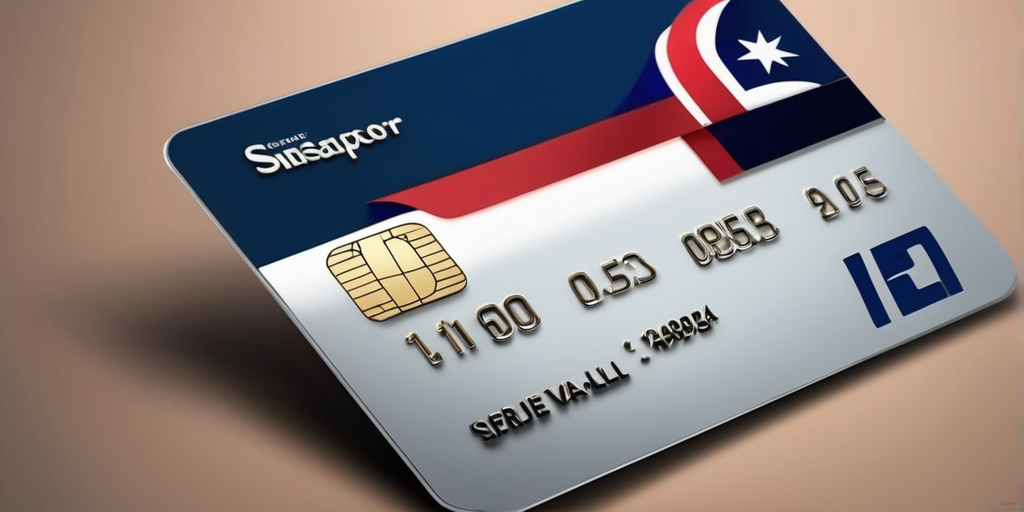If you’re feeling overwhelmed by credit card debt in Singapore, you’re not alone. Managing and settling credit card debts can be challenging, but there are several effective strategies available to help you regain financial control. Understanding the options at your disposal and taking proactive steps can significantly ease the burden and pave the way towards a debt-free future.

Assessing your financial situation is the crucial first step in tackling credit card debt. By gaining a clear understanding of your income, expenses, and outstanding debts, you can create a realistic plan to settle your credit card debts in a manageable way. With various options available for debt settlement, it’s essential to explore the strategies that align with your financial circumstances and long-term goals. By taking the necessary steps to address your credit card debt, you can pave the way for a more secure financial future and peace of mind.
Key Takeaways
- Understanding your financial situation is the first step to tackling credit card debt.
- Exploring the available options for debt settlement is crucial for regaining financial control.
- Taking proactive steps to address credit card debt can pave the way for a more secure financial future.
Understanding Credit Card Debt in Singapore

If you are facing credit card debts in Singapore, it’s essential to understand how credit card debt works in the country. Credit card debts occur when you have used your credit card to make purchases or cash withdrawals and have not paid off the full amount by the due date. In Singapore, credit cards often come with high interest rates, which can make it challenging to clear your debts if they accumulate. It’s crucial to be aware of the interest rates associated with your credit cards as they can significantly impact the total amount you owe.
When managing credit card debts in Singapore, it’s important to keep track of the interest rates on your cards. High interest rates can lead to a rapid increase in the amount you owe, making it harder to pay off the debt. Understanding the interest rates and how they apply to your outstanding balance is crucial in formulating a strategy to settle your credit card debts effectively.
Assessing Your Financial Situation

If you’re struggling with credit card debt, the first step to take is to assess your financial situation. This will help you understand your current financial standing, which will enable you to make informed decisions on how to settle your debts. Here are some of the things you need to do:
Analyse Your Income and Expenses
The first thing you need to do is analyse your income and expenses. This will give you a clear picture of your monthly income and necessary expenses. Make a list of all your monthly income sources and compare them to your necessary expenses. This will help you determine how much you can allocate towards your credit card debt.
Review Your Debt Obligations
Review all your debt obligations, including your credit card debt. Make a list of all your liabilities, including outstanding balances, interest rates, and target debt. This will help you understand the extent of your debt and how much you need to pay each month.
Prioritise High-Interest Debts
High-interest debts should be your top priority. These debts can quickly accumulate and become unmanageable. Therefore, it’s essential to pay them off as soon as possible. Make a list of all your high-interest debts and allocate more funds towards paying them off.
Create a Budget Plan
Creating a budget plan is crucial when settling credit card debts. A budget plan will help you understand your expenses and enable you to allocate your funds towards paying off your debts. Make a list of all your necessary expenses, such as utility bills, food, and transport, and subtract them from your income. This will help you determine how much you can deposit in your credit card accounts.
Check Your Credit Score
Checking your credit score is essential when settling credit card debts. Your credit score will determine your eligibility for credit card debt consolidation or other debt repayment plans. Therefore, it’s important to check your credit score and improve it if necessary.
Assessing your financial situation is the first step towards settling your credit card debts. By analysing your income and expenses, reviewing your debt obligations, prioritising high-interest debts, creating a budget plan, and checking your credit score, you’ll be able to make informed decisions on how to settle your debts.
Options for Settling Credit Card Debts

If you’re struggling to repay your credit card debt in Singapore, there are several options available to you. Here are some of the most common ways to settle your credit card debt:
Debt Consolidation Plans
Debt consolidation plans (DCP) are among the top strategies for settling credit card debt because it eliminates excess interest rates. You can consolidate all your credit card debt into one loan with a fixed interest rate and flexible repayment period. This helps you to manage your debt better and make monthly payments more manageable. Banks in Singapore offer DCPs with repayment periods of up to 10 years.
Balance Transfer Credit Cards
Another option is to transfer your credit card debt to a balance transfer credit card. These cards offer zero interest or low-interest rates for a promotional period, usually between six months to a year. This can help you save money on interest charges and pay off your debt faster. However, be aware that there may be fees associated with balance transfers.
Personal Loans for Debt Repayment
You can also consider taking out a personal loan to repay your credit card debt. Personal loans offer a fixed interest rate and flexible repayment period, which can make it easier to manage your debt. You can borrow a lump sum of money to pay off your credit card debt and then make monthly payments to repay the loan.
Credit Counselling Services
Credit Counselling Singapore (CCS) is a non-profit organisation that provides assistance to people struggling with debt. They offer credit counselling services, debt management programmes, and debt repayment schemes (DRS). CCS can help you negotiate with creditors, create a debt repayment plan, and provide support throughout the process.
Negotiating with Creditors
If you’re unable to make your monthly credit card payments, you can try negotiating with your creditors. You can propose a debt repayment plan and negotiate a repayment schedule that works for you. This can help you avoid bankruptcy or being sued by your creditors.
Liquidating Assets
If you have properties, cash, or other assets, you can consider liquidating them to pay off your credit card debt. This can help you reduce your debt and avoid high-interest charges. However, be aware that liquidating assets can have long-term consequences and should be considered carefully.
Government and Community Support
The Singapore government and community offer various forms of assistance to people struggling with debt. You can seek help from the Social Service Offices, which provide financial assistance and support for low-income families. You can also seek help from the Credit Counselling Singapore, which provides debt management programmes and debt repayment schemes.
Lifestyle Changes and Financial Discipline
Finally, you can make lifestyle changes and practice financial discipline to reduce your expenses and increase your income. This can help you free up money to pay off your credit card debt faster. You can also take advantage of cashbacks, rewards, and discounts offered by credit card companies to reduce your expenses. Additionally, you can avoid late payments by setting up automatic payments or reminders.
Staying Debt-Free in the Future

Congratulations! You’ve managed to settle your credit card debt. Now, it’s time to focus on staying debt-free in the future. Here are some tips to help you maintain your financial stability:
Building an Emergency Fund
It’s always a good idea to have an emergency fund to cover unexpected expenses. Aim to save at least three to six months’ worth of living expenses. Keep this money in a separate account and only use it for emergencies. This will help you avoid using credit cards or taking out loans when unexpected expenses arise.
Monitoring Credit Card Use
To avoid falling back into credit card debt, it’s important to monitor your credit card use. Keep track of your spending and make sure you’re not overspending. Set a budget for your monthly expenses and stick to it. If you find yourself relying too heavily on credit cards, it may be time to re-evaluate your expenses and make some changes.
Continuing Financial Education
Continuing your financial education is key to staying debt-free. Learn about personal finance, budgeting, and credit management. Attend workshops or seminars, read books or blogs, or seek advice from financial experts. The more you know about managing your finances, the better equipped you’ll be to make informed decisions and avoid debt.
Remember, staying debt-free requires discipline, commitment, and a willingness to make changes. By building an emergency fund, monitoring your credit card use, and continuing your financial education, you’ll be on your way to a debt-free future.
Conclusion

In conclusion, settling credit card debts in Singapore can be a daunting task, but there are several effective ways to manage it. The first step is to assess your financial situation and create a budget plan that suits your needs. This will help you identify areas where you can cut back on expenses and increase your savings.
Next, consider consolidating your credit card debts using a balance transfer credit card or a personal loan. This can help you save money on interest and simplify your payments into one monthly instalment.
Another option is to negotiate with your credit card issuer for a lower interest rate or a payment plan that suits your financial situation. You can also seek help from a debt counselling agency, which can provide you with professional advice on how to manage your debts.
Remember, the key to successfully settling your credit card debts is to stay disciplined and committed to your financial goals. By following the tips and strategies outlined in this article, you can take control of your finances and achieve financial freedom.
Frequently Asked Questions

What are the top strategies for rapidly clearing credit card dues?
If you want to quickly clear your credit card debt, you can try the following strategies:
- Prioritise your debt: Start by paying off the credit card with the highest interest rate. This will help you save money on interest charges in the long run.
- Negotiate with your bank: You can try negotiating with your bank to lower the interest rate or waive off some of the fees.
- Increase your income: Consider taking up a part-time job or selling some of your belongings to generate extra income.
- Cut back on expenses: Look for ways to reduce your expenses, such as cancelling subscriptions or dining out less frequently.
Can you suggest some effective methods to eliminate credit card liabilities?
Here are some effective methods to eliminate credit card liabilities:
- Debt consolidation: You can consolidate all your credit card debts into a single loan with a lower interest rate. This will help you save money on interest charges and make it easier to manage your debt.
- Balance transfer: You can transfer your credit card balance to a card with a lower interest rate. This will help you save money on interest charges and pay off your debt faster.
- Debt settlement: You can negotiate with your bank to settle your debt for a lower amount than what you owe. This can help you save money and get out of debt faster.
What repercussions do I face if I don’t pay off my credit card balance?
If you don’t pay off your credit card balance, you may face the following repercussions:
- Late payment fees: Your bank may charge you a late payment fee if you miss a payment deadline.
- Interest charges: Your bank will charge you interest on the outstanding balance, which can quickly add up over time.
- Damage to credit score: Not paying off your credit card balance can damage your credit score and make it harder to get credit in the future.
- Legal action: Your bank may take legal action against you to recover the debt.
How does a Debt Management Plan aid in resolving credit card obligations?
A Debt Management Plan (DMP) is a debt repayment scheme that helps you pay off your debt in an affordable and sustainable way. With a DMP, you make a single monthly payment to a credit counselling agency, which then distributes the funds to your creditors. This can help you get out of debt faster and avoid legal action from your creditors.
What are the potential drawbacks of engaging in a debt repayment scheme?
Engaging in a debt repayment scheme may have the following potential drawbacks:
- Lower credit score: Your credit score may be negatively affected if you engage in a debt repayment scheme.
- Longer repayment period: It may take longer to pay off your debt if you engage in a debt repayment scheme.
- Limited credit options: Engaging in a debt repayment scheme may limit your credit options in the future.
Is fleeing from credit card debts in Singapore a viable option?
No. Fleeing from credit card debts is not a viable option. If you don’t pay off your credit card debt, you may face legal action from your bank, which can result in a court order to repay the debt. This can lead to wage garnishment or seizure of assets, which can have serious consequences for your financial future.

